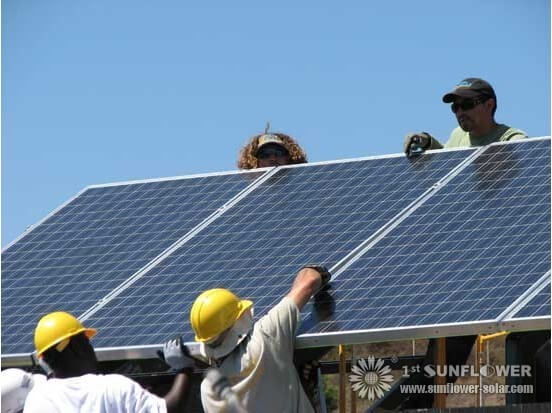Views: 1 Author: Site Editor Publish Time: 2024-12-10 Origin: Site

Solar panel systems for home use in Africa are gaining popularity due to the need for reliable, sustainable, and affordable energy solutions, especially in areas with limited or no access to electricity. Here's an overview of their applications, types, and benefits:
Applications:
Lighting
Powering LED bulbs for indoor and outdoor lighting.
Street lighting for homes in rural communities.
Household Appliances
Operating essential appliances like fans, refrigerators, TVs, and radios.
Charging mobile phones and powering laptops for work or education.
Cooking and Water Heating
Solar-powered cookers and water heaters reduce dependence on firewood or gas.
Water Supply
Solar water pumps for domestic water supply.
Backup Power
Providing an alternative power source during frequent grid outages in urban and peri-urban areas.
Types of Solar Systems for Home Use
Off-Grid Solar Systems
Completely independent of the national grid.
Suitable for remote areas without electricity access.
Includes solar panels, battery storage, inverters, and charge controllers.
Grid-Tied Solar Systems
Connected to the national grid.
Excess electricity can be fed back to the grid if net metering is available.
Requires less battery storage, reducing costs.
Hybrid Solar Systems
Combines grid power, solar panels, and battery storage.
Provides backup during power outages while reducing energy bills.
Solar Home Kits
Pre-assembled systems designed for small-scale use.
Includes panels, LED lights, and USB ports for charging devices.
Benefits
Energy Independence
Reduces reliance on unreliable grid electricity or costly diesel generators.
Cost Savings
Significant reduction in electricity bills over time.
Affordable "Pay-As-You-Go" (PAYG) systems allow gradual payments.
Environmental Impact
Reduces greenhouse gas emissions compared to fossil fuels.
Promotes sustainable energy use.
Improved Quality of Life
Reliable power supply for lighting, education, and communication.
Enhances safety and security with proper lighting.
Economic Opportunities
Enables home-based businesses to operate efficiently.
Considerations for Installation
Solar Potential
Most regions in Africa receive abundant sunlight, making solar energy highly viable.
System Size
Assess energy needs to determine the size and components of the system.
Battery Storage
Essential for off-grid systems to store energy for nighttime use.
Cost and Financing
Initial costs can be high; explore government subsidies, PAYG options, or microloans.
Maintenance
Regular cleaning of solar panels and checking of batteries and inverters are necessary for optimal performance.
Challenges
Initial setup costs can be a barrier.
Limited local technical expertise for system installation and maintenance.
Access to quality components in remote areas.
Solutions
Governments and NGOs providing subsidies and incentives.
Training programs to build local capacity for solar system maintenance.
Increased availability of affordable, modular solar kits tailored to home use.
Solar panel systems for home use in Africa offer a sustainable way to bridge the energy gap, improve living standards, and contribute to environmental conservation.